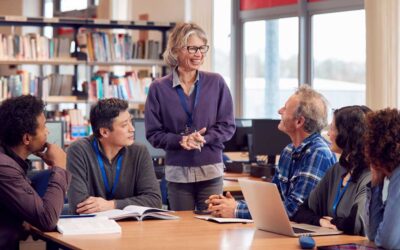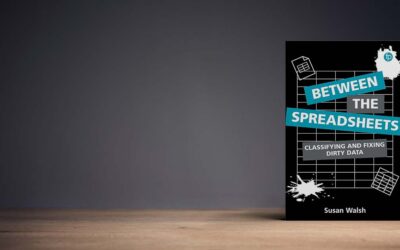Interview with Rachael Resnik of the Art Libraries Society of North America
Lauren Hays
Rachel Resnik is the president of the Art Libraries Society of North America. My interview with her is below.
Lauren Hays: Would you please introduce yourself to our readers?
Rachel Resnik: My name is Rachel Resnik. I am the president of the Art Libraries Society of North America. I am also a librarian at the Massachusetts College of Art and Design in Boston. I have been in that position for nearly 24 years. I am a long time art librarian and member of ARLIS/NA, so it is a pleasure to be serving the society in the capacity of President.
Lauren Hays: Would you briefly describe the Art Libraries Society of North America?
Rachel Resnik: We are a society of about a thousand members from all over North America and are about to celebrate our 52nd birthday. The Society is a group of people who are passionate about art information and as a Society, we provide community. We do a lot of programming and professional development. We have an annual conference and a publishing arm. Many of our publications are freely available on humanities commons, and we do advocacy and promote both our members and our member institutions
Lauren Hays: What professional development topics is the Society focused on currently?
Rachel Resnik: It is such a range of topics, but DEI is often centered in our conversations and the programming we are doing. We are very interested in pedagogical approaches to librarianship and information literacy. ARLIS/NA is also very interested in arts information so visual literacy is an important component of that. We also discuss outreach.
Further, we have a new group that is focusing on neurodiversity in arts libraries for both librarians and patron populations. Finally, we are just starting to think about AI.
Lauren Hays: If somebody were interested in one of these topics, how would they go about getting involved?
Rachel Resnik: There are a number of ways. We are about a thousand members strong, and we have a dizzying number of committees, division sections, and SIGs. We also have 18 chapters, and people can get involved locally at a chapter. Getting involved in one of those groups is a great way to do it.
We have a freely available listserv. One does not need to be a member to join the listserv. Individual groups in the Society always advertise what is going on there.
Of course, the annual conference is coming up in April; attending the conference is a way to engage in these topics.
In the future, I would like to see ARLIS/NA do more paid virtual programming throughout the year. It would bring in more people, including those who are not able to attend the conference.
Lauren Hays: Would you share more about the annual conference?
Rachel Resnik: We are going to be in Pittsburgh in April. Last spring we were in Mexico City. That was our 51st anniversary, and it was our first time having a conference in Mexico. Even though we are the Art Library Society of North America, all of our conferences have been in the United States or Canada. It was a completely ethereal experience with the food and the art and the culture and most importantly, getting that time with our Mexican colleagues—which we seldom get to do.
Pittsburgh is total Americana. It has such an amazing history, and it is a center of pop culture. The theme of the conference is pop–just pop, that is the entire theme. We left it open for people to suggest programming that could relate to it. It is a nod to pop art, but is also meant simply to be fun and engaging. It is also a little bit about reckoning, like popping preconceived notions about things and thinking about how we can do better and be better.
We have our welcome party at the August Wilson Center for African American culture. I have been talking to a graduate student at Carnegie Mellon University, who was last year’s director of their Afro pop ensemble—so still playing with that pop theme a little bit more loosely, I am trying to get them to come and do some music for that opening party. Additionally, the Carnegie Museum have very generously offered all of our attendees free admission to all their museums during the extent of the conference. That includes the Carnegie Museum of Art, the Carnegie Museum of Natural History, and the Andy Warhol Museum.
Lauren Hays: Are there any other initiatives that you would like to share?
Rachel Resnik: ARLIS/NA just adopted a new strategic plan. We approved a new mission, vision, and value statement last spring, and then goals this past fall. We have strategies written by all members of different constituent groups. There is a lot happening. Diversifying our membership is really important to us. We would like to double the number of BIPOC members we have. We also want to increase membership in general.
We also want to look at our infrastructure and make sure that the organization is strong and sustainable.
Lauren Hays: Is there anything else you would like to share?
Rachel Resnik: I have been a member of ARLIS for 20 years now, and it has just been such an important part of my professional life.
I have gotten involved in so many different aspects from being on committees and co-chairing a conference in Boston in 2010, to now being on the board. I feel like ARLIS/NA has given so much back to me. I am very grateful to be serving the Society as President.
To anyone who is reading, I think ARLIS/NA is one of the most incredibly warm and quirky groups of people; it has been a haven for me and I hope others come check it out and experience that themselves.
Lauren Hays
Dr. Lauren Hays is an Assistant Professor of Instructional Technology at the University of Central Missouri, and a frequent presenter and interviewer on topics related to libraries and librarianship. Please read Lauren’s other posts relevant to special librarians. Take a look at Lucidea’s powerful integrated library systems, SydneyEnterprise, and GeniePlus, used daily by innovative special librarians in libraries of all types, sizes and budgets.
Never miss another post. Subscribe today!
Similar Posts
Balancing Human Oversight with AI: Tips for Special Librarians
Special librarians can use AI without losing expert control. Use this practical checklist to verify accuracy, bias, sources, licensing, and fit.
End-of-Calendar-Year Reflections for School Librarians
The end of the calendar year offers school librarians a chance to reflect on what’s working, make thoughtful adjustments, and plan for the year ahead.
Library Instruction: Learning Styles Are Out, Evidence-Based Practices Are In
For instructors and educators of all types, it’s vital to realize that evidence-based practices are more effective than catering to the myth of learning styles.
Interview with Susan Walsh:
Dirty Data, AI, and the 2nd Edition of “Between the Spreadsheets”
Author Susan Walsh discusses the new edition of “Between the Spreadsheets,” sharing insights on fixing dirty data, AI’s impact, and her COAT framework.




Leave a Comment
Comments are reviewed and must adhere to our comments policy.
0 Comments